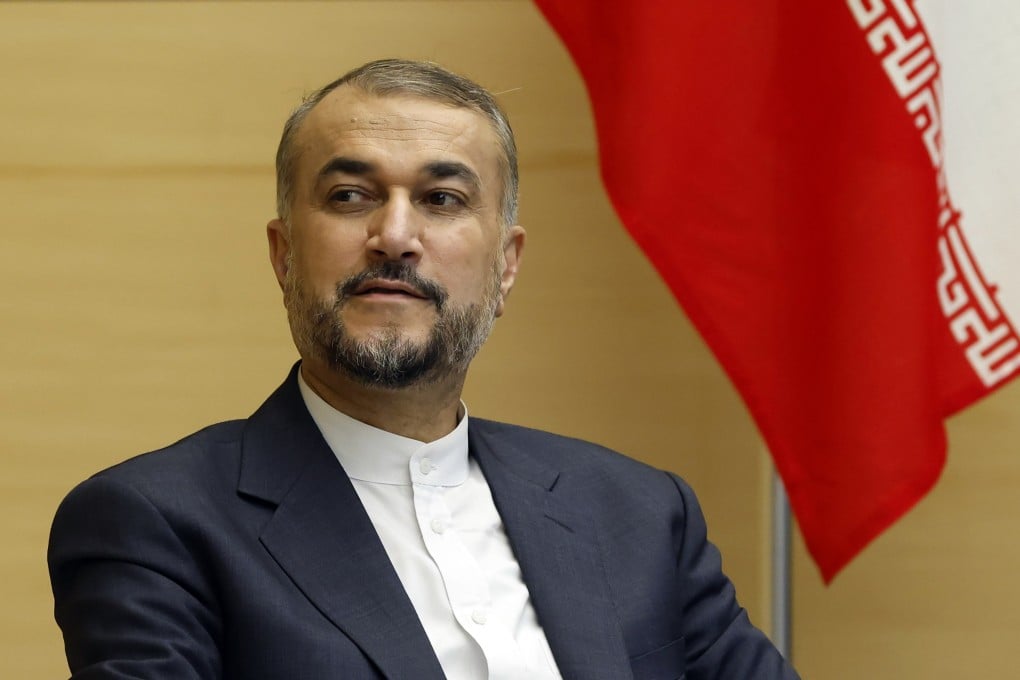China and Iran pledge cooperation ahead of Brics summit, as Tehran seeks to join bloc
- The two countries’ foreign ministers, Wang Yi and Hossein Amir-Abdollahian, speak two days before the summit begins in Johannesburg
- Beijing and Tehran signed a US$400 billion strategic cooperation agreement two years ago, and China also helped broke a deal between Iran and Saudi Arabia

During Sunday’s phone conversation, Iran’s Hossein Amir-Abdollahian told his Chinese counterpart Wang Yi that Tehran hoped to strengthen cooperation with Beijing in regional and international affairs
In 2021, Tehran and Beijing signed a US$400 billion strategic cooperation agreement, paving the way for Iran’s participation in the Belt and Road Initiative, a global infrastructure project stretching from Asia to Europe.
The Chinese statement said Beijing would support Iran over issues concerning the two sides’ core interests, adding: “China is willing to … jointly oppose external interference; resist unilateral bullying; defend the two countries’ sovereignty, security and development interests; and safeguard the common interests of developing countries and international fairness and justice.”
A growing number of countries have expressed an interest in joining the Brics group of emerging economies, whose current members are Brazil, India, Russia, China and South Africa. Apart from Iran, Bangladesh, Bolivia, Indonesia and 53 African countries have also been invited to the three-day summit that starts in Johannesburg on Tuesday.